Regular readers of CAMERA UK cannot help but be aware of the BBC’s editorial guidelines concerning the use of language when reporting terrorism:
“11.3.5 Our reporting of possible acts of terror should be timely and responsible, bearing in mind our requirement for due accuracy and impartiality. Terrorism is a difficult and emotive subject with significant political overtones and care is required in the use of language that carries value judgements. We should not use the term ‘terrorist’ without attribution.
11.3.6 The word ‘terrorist’ itself can be a barrier rather than an aid to understanding. We should convey to our audience the full consequences of the act by describing what happened. We should use words which specifically describe the perpetrator such as ‘bomber’, ‘attacker’, ‘gunman’, ‘kidnapper’, ‘insurgent’ and ‘militant’. We should not adopt other people’s language as our own; our responsibility is to remain objective and report in ways that enable our audiences to make their own assessments about who is doing what to whom.”
As we all too frequently have cause to note, the BBC applies those guidelines rigorously when reporting on Palestinian terrorism but ignores them when the terrorism is closer to home.
In addition, back in January 2016 we documented unusual BBC use of the term terrorists in its coverage of an attack in Judea & Samaria. That coverage related to an attack perpetrated by Israelis and as we noted at the time:
“The BBC’s description of detainees in cases such as the murders of three sleeping members of the Dawabshe family in the arson attack in Duma on July 31st 2015 as “suspected terrorists” is of course accurate. Despite the fact that this article confines itself to noting “international condemnation” of the Duma attack and even amplifies baseless accusations concerning the investigation into the attack from a family member, such wording appropriately reflects the Israeli government’s classification of the attack from the very beginning.
However, the people who murdered five members of the Fogel family as they too slept in 2011 and the people who murdered the parents of the Henkin family in October 2015 and the people who murdered early morning worshippers at a Jerusalem synagogue in 2014 and the people who murdered Malachi Rosenfeld in June 2015 (in an attack now mentioned in this report but not reported in English by the BBC at the time) are also terrorists.
The trouble is that the BBC does not use the term terrorists to describe them or the perpetrators of countless other attacks against Israelis to its audiences. It is high time that it explained to its funding public why that is the case.”
Following a complaint, the BBC did indeed ‘explain’ that double standard and as we observed:
“So what the BBC is actually saying here is that it makes use of the term “Jewish terrorists” – including not in direct quotes and in apparent contradiction to BBC editorial guidelines on ‘Language when Reporting Terrorism’ – because Israeli officials use such wording.”
That issue arose again this week when the BBC’s Yolande Knell produced several reports relating to statements made by the IDF spokesman.
Listeners to the BBC Radio 4 programme ‘PM’ on the afternoon of August 7th heard the following in a news bulletin (from 45:14 here):
Newsreader: “An Israeli military spokesman, Rear Admiral Daniel Hagari, has said that attacks by Israeli settlers against Palestinians in the occupied West Bank are a form of terrorism that needs to be addressed.”
Just over half an hour later, BBC Radio 4’s ‘Six O’Clock News’ also aired an item on the same topic (from 22:47 here): [emphasis in italics in the original, emphasis in bold added]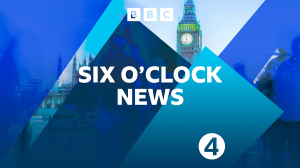
Newsreader: “The Israeli military’s chief spokesman has described violence by Israeli settlers against Palestinians in the occupied West Bank as terrorism. He also linked it to a rise in attacks by Palestinians. His comments echoed those reportedly made by the head of Israel’s internal security service, which have been denounced by some far-Right politicians in the government. Here’s our Middle East correspondent Yolande Knell.”
Radio 4 audiences were not informed that the “rise in attacks by Palestinians” began some two years ago with collaboration between known terrorist organisations and the formation of the Jenin Battalion or of relevant factors such as the failure of the Palestinian Authority to exert control over areas supposedly under its administration, the rise in the number of PA security forces personnel taking part in terrorism and violence or the financing of terror and smuggling of weapons to terrorist organisations located in supposedly PA controlled parts of Judea & Samaria by Iran and its proxies in the region, Hamas and Hizballah.
Knell: “In a round of interviews on Israeli media, the army’s top spokesman addressed a weekend of violence in the West Bank and Israel. On Friday a young Palestinian man was killed in an attack by armed settlers on a village near Ramallah and the next day a Palestinian fatally shot a security guard in Tel Aviv before another guard shot him dead. Yesterday Israeli forces killed three Palestinians in Jenin who were said to have been planning an attack.”
Knell did not inform listeners that the incident in Burqa is still under investigation or that several related arrests have been made. She failed to note that the terrorist who committed the attack in Tel Aviv was a member of the PIJ terrorist organisation – rather than just “a Palestinian” – or that the “three Palestinians” killed in the counter-terror operation on August 6th were claimed by two terrorist organisations. She continued:
Knell: “Speaking to the Ynet News site, Rear Admiral Daniel Hagari strengthened his usual language to describe settler violence as terrorism and he said it was pushing Palestinians into what he called terror too.”
Recording of Hagari, voiceover: “Nationalist crime and nationalist terror is terror. I don’t have any other way to say it. It pushes civilians who are not involved in terror in the Palestinian Authority to terror.”
Knell: “Those remarks echo a warning that was reportedly given by the head of Israel’s internal security service to the prime minister before Friday’s deadly incidents. Far-Right members of the governing coalition then accused him of being a Leftist and unable to distinguish between the enemy and his own people, prompting the prime minister to voice his support for his security official. There’s been growing international concern about a recent rise in violence by extremist settlers under Israel’s hardline government, with the US also labelling Friday’s attack as terrorism.”
As was noted here previously, Knell similarly promoted that US condemnation in a BBC News website report initially published on August 6th (and later amended on August 7th to include Hagari’s remarks) but in both cases failed to inform BBC audiences that the US State Department also ‘labelled’ the attack in Tel Aviv as terror.
An additional report by Knell on the same topic appeared in the August 7th evening edition of the BBC World Service radio programme ‘Newshour’ (from 30:07 here). In his introduction to that item, presenter Gary O’Donoghue gave an unusually accurate description of the perpetrator of the Tel Aviv attack.
O’Donoghue: “In Israel there’s been some explosive language from the chief spokesperson for the military, Daniel Hagari. In an interview with the Israeli network Ynet, he described attacks by Israeli settlers on Palestinians in the occupied West Bank as terrorism.”
Recording of Hagari, voiceover: “Nationalist crime and nationalist terror is terror. I don’t have any other way to say it. It pushes civilians who are not involved in terror in the Palestinian Authority to terror.”
O’Donoghue: “The warning follows violence over the weekend when a young Palestinian man was killed by Israeli settlers near Ramallah and a Palestinian terrorist from Jenin killed an Israeli patrolman in Te Aviv on Saturday evening. The BBC’s Middle East correspondent Yolande Knell told me more.”
Clearly there is no issue with multiplatform reporting of the IDF spokesman’s statements. The problem is that the BBC will not produce similar coverage of remarks made by Palestinian officials because they will never use comparable terminology to describe the actions of their own citizens who carry out attacks against Israelis. Hence, BBC audiences will hear about terrorism perpetrated by Israelis but the corporation will continue to avoid using that term in relation to Palestinian attacks.
As we noted back in 2016, the obvious outcome of that is a double standard according to which the accuracy of the terminology used by the BBC is dependent upon the honesty of the government or authority concerned. That clearly should be a big problem for a media organisation supposedly committed to accurate and impartial reporting but as we see, nothing has in fact changed in the BBC’s approach in the past seven and a half years.
Related Articles:
MORE EVIDENCE OF BBC NEWS DOUBLE STANDARDS ON USE OF THE WORD TERROR
BBC COMPLAINTS CLARIFIES DISCREPANCIES IN TERMINOLOGY WHEN REPORTING TERRORISM
OVER 24 HOURS LATE AND JUST 37 WORDS: BBC NEWS ‘REPORTS’ TEL AVIV TERROR ATTACK

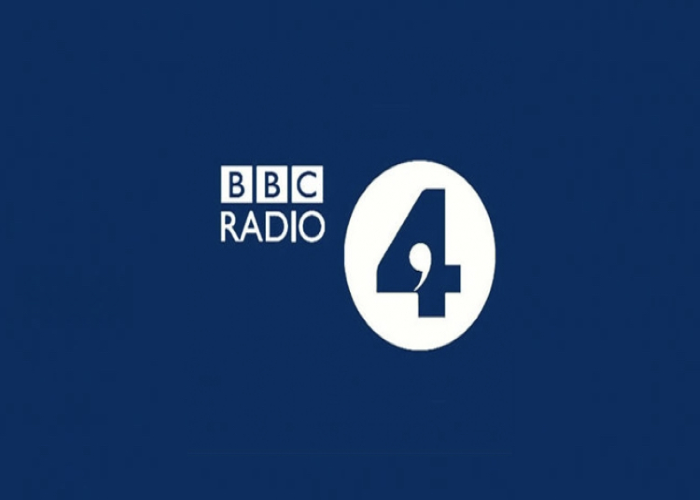
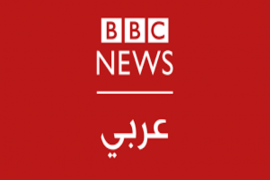
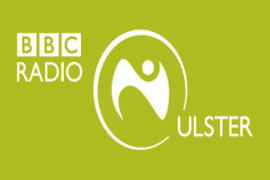
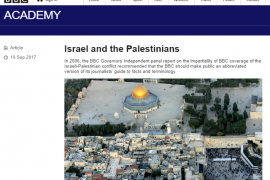
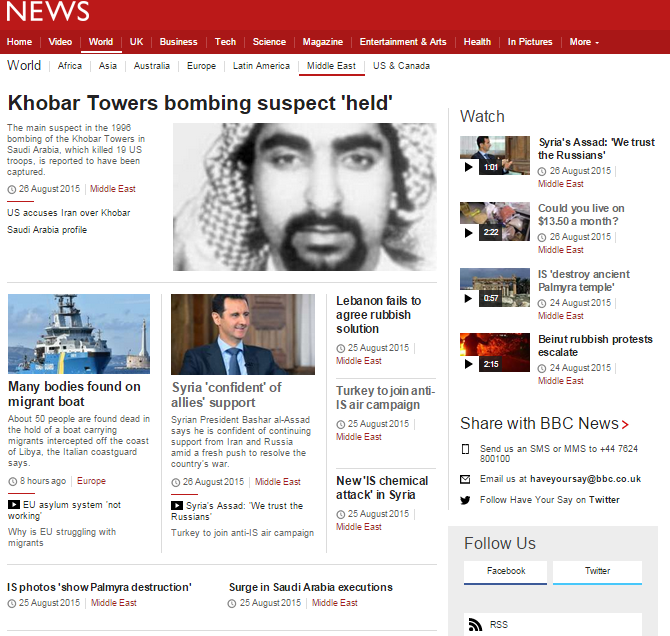
If anyone believes a single word reported by the BBC about the Middle East then they seriously need to seek help. #defundthebbc